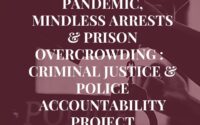TURKEY PASSES A NEW LAW ON OVERSIGHT OF ASSOCIATIONS- AN INFORMATIVE INSIGHT
This article has been written by Ipsita Rout, 4th Year, KIIT SCHOOL OF LAW, KIIT UNIVERSITY and Curated by Nandita Mishra, Chanakya National Law University, Patna
1. INTRODUCTION
A bill that would improve the monitoring of civil society organisations was passed by the Turkish parliament. The act is called ‘Preventing the Financing of the Proliferation of Weapons of Mass Destruction’ and was formulated by the ruling Justice and Development Party of President Recep Tayyip Erdogan to comply with the guidelines of the United Nations Security Council to keep terrorist financing and money laundering in check. Critics consider that certain provisions of the bill are unconstitutional and believe that, because they conflict with the right to freedom of association, they violate the provisions of the Turkish constitution.
WHAT DOES THE BILL SAY ABOUT THIS?
The Bill follows the 2019 Turkey review prepared by the Financial Action Task Force (FATF) of the Intergovernmental Authority to tackle money laundering and terrorist financing. The bill contains 43 articles and has made revisions to seven laws on the Law of Associations of Turkey and is intended to protect Turkey from being blacklisted by the Paris-based terror funding watchdog. The FATF is now in its 30th year as an intergovernmental body working to “set standards and promote the effective enforcement of legal, regulatory and functional steps to fight money laundering, the financing of terrorism and other possible dangers to the integrity of the global financial system.”
WHAT ARE THE CONSEQUENCES OF THE PASSAGE OF THE BILL?
The Bill gives the Turkish state the authority to nominate non-governmental organizations (NGOs) as trustees, suspend their operations, seize their properties and monitor their funding sources. According to numerous media reports, in a nation where civil society is still not very open, critics and human rights advocates see this change as a way of crackdown on dissenters.
Thousands of reporters, policymakers, scholars and judges have been targeted by the government after a failed coup in 2016 aimed at defending democracy in the country. Earlier this year, as part of its measures against those suspected of being involved in a 2016 coup plot to destabilize Erdogan’s government, Turkish prosecutors ordered the detention of nearly 700, including military and justice ministry personnel. Erdogan, who is viewed as an Islamist and a nationalist, has been in power for more than a decade now, bringing about a series of changes in Turkish society.
The Turkish authorities have carried out a crackdown on the suspected followers of the US-based Muslim cleric Fethullah Gülen, whom Erdogan has long accused of planning the 2016 coup, after the coup took place. Gülen refuted those accusations and denounced the coup. In reality, he has previously indicated that the government itself “staged” the coup. An article in Al-Monitor said the bill would give another blow to “civil society, which is taking precautions to steer Turkey on a more democratic path and have radiated hope even as Erdogan is moving the country in the opposite direction.”
There is a lack of independence in the Turkish courts, and there is a ubiquitous trend of courts convicting people of terrorist offences on the basis of their legal actions and without presenting proof of material connections to armed groups. For this purpose, Human Rights Watch strongly opposes equipping the Ministry of the Interior with the ability to use the pretext of an investigation into terrorism that has not been tried, let alone convicted, to bar individuals from communicating with NGOs.
Even though, in order to become permanent, administrative decisions to temporarily suspend group activities need to be validated by court order, the judiciary lacks freedom and the executive can, on a whim, intervene with the administration of justice. For these purposes, in order to protect non-governmental organisations from arbitrary termination, the courts may not be successful.
CONCLUSION
The bar associations’ civil rights advocacy is likely to be significantly weakened. Whenever a critical bar association discloses a violation of human rights or criticizes the human rights policies of the government, another bar association is likely to issue a counter-statement, undermining the value of the criticism and politicising the matter. In short, while the formation of competing bar associations in cities can seem to give lawyers a wider choice over which professional body to join at face value, the state’s own comments about the initiative and the timing and means by which it is being enforced reveal a political goal unrelated to legitimate attempts to advance or enhance legal profession standards. The proposed legislation is politically divisive, would bring an end to the proportionate representation of bars in the Union of Turkish Bars at national level, and will lead to weakening the appearance of impartiality and independence in the system of justice.
Turkey’s new law in essence is a stab to the freedom of associations and has brought a newer threat to the emotional attachment in the minds of the aggrieved citizens, as it curtails their freedom of movement, and also narrows the choice that they had before, all leading to curtailment of rights as a whole.


